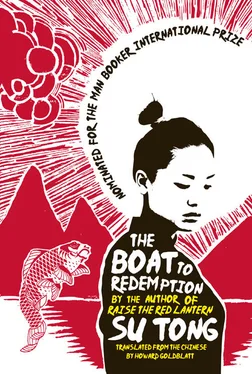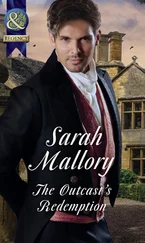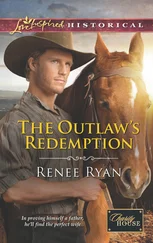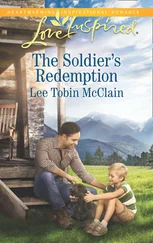He had such a solemn look I doubt he even felt the pain. With a look of stern righteousness, he said, ‘No. A bloody nose doesn’t bother me. I’m not afraid to lose my head over this. Go ahead, hit me again, beat me into martyrdom. Then they’ll shoot you, a life for a life, and I’m the winner.’
The sight of Bianjin standing there with blood flowing from his nose nearly had me in tears. The wind returned to my fist, and I heard the sinister voice again. Hit him, go ahead. He’s an orphan, after all, no parents and no friends, kill him and no one will care . It was a strange, evil voice, forcing me on, making me feel like crying. My fist danced around Bianjin’s face, which was like a child’s face — dirty, gaunt and innocent. He wore the bleak but inexplicably pure expression common to orphans. My fist stopped before it smashed into his cheekbone. ‘Oh, to hell with it!’ I said. ‘You’re a pitiful creature, and I can’t keep hitting you. If I killed you, no one would even claim your body.’
‘You’re done, but I’m not,’ he said through clenched teeth. ‘We’ll settle up later. This debt will be paid.’
His threat rekindled the flames and stoked a nameless fire that had smouldered in my heart for eleven years. Hatred and loathing, old and new, came together in fists that were infused with the power of savage vengeance. ‘We’ll settle up later. This debt will be paid!’ I roared as my fists rained down on his face. ‘This debt will be paid! You people on the shore owe a debt to my father and to me. Yes, it will be paid — paid by you. That’s how it will be paid!’
The next thing I heard were Bianjin’s shrieks, ‘My eyes! You hit me in the eyes!’ He was in such a state he’d begun to stammer slightly. ‘Don’t … don’t hit me in the eyes, don’t do that. Hit me anywhere but my eyes. Kill me, but not my eyes. I can’t tend my geese if I’m blind. What’ll happen to my geese and my ducks?’
He was covering his eyes with his hands, and I saw trickles of blood seep through his fingers, which snapped me back to my senses. I unclenched my fists and looked closely at Bianjin, whose aching head hung low. Now, finally, he jumped down off the stone and, still covering his eyes, began to cry.
In the dim light of the streetlamps I saw someone running towards us with a club. ‘Who’s fighting out there? Fighting around the piers is not allowed.’ It was the security guard, late as always. The light glinted off his head; it could only be Baldy Chen, who was a stickler for enforcing the law. Without a word, he put his truncheon to use, hitting me on the shoulder and Bianjin on the arm. Bianjin dropped his hands and grabbed his own arm with one of them. He wailed like an abused child. ‘You hit me! Why did you hit me? You’re in charge of security. Can’t you tell friend from foe?’
Baldy gasped when he saw Bianjin’s bloody face. ‘Did you do this to him, Ku Dongliang? You’re too damned wild for your own good. Other people bully you, so you bully the idiot, is that it?’ He crouched down to look at Bianjin’s injuries. ‘Look what you’ve done to his nose,’ he said. ‘This spells big trouble for you, Kongpi. What if it’s broken?’
‘He had it coming,’ I said. ‘I’ll make amends if it’s broken.’
Then Bianjin showed Baldy Chen his eyes. ‘I can’t see,’ he sobbed. ‘He blinded me.’
Baldy lifted the man’s chin with his truncheon to get a closer look at his eyes. Again he gasped. ‘Kongpi, you’ve really done it this time. You’re worse than the Fascists. How could you do that? What if he really is blind?’
‘He had it coming,’ I repeated. ‘I’ll make amends if he’s blind.’
‘Make amends, make amends! Talk’s cheap. How the hell many eyes do you have to make amends for?’ Baldy took out a filthy handkerchief to wrap around the idiot’s eyes. ‘What the hell’s got into you, Kongpi?’ he said as he poked me with his truncheon. ‘This time you’ve gone too far. What are you standing around for, when you should be rushing him to the hospital? If he dies, you’re done for!’
‘I’m not going to take him. He’s the one who insisted on a life for a life. Besides, neither of our lives is worth a damned thing. If he dies, I’ll make amends with mine.’
I could no longer hold back my tears. Nor could my body stand the stress. Slowly I fell to my knees in front of the stone, my face pressed against its cold surface, which sharply chilled my cheek as if cold water had been poured over it. Whose tears were they, mine or Deng Shaoxiang’s? The martyr’s spirit was judging me, making its presence known. Overcome with profound regret for what I’d done to Bianjin, I punished myself for my unconscionable behaviour by slapping myself across the face, which was hardly sufficient to absolve myself. Self-pity and grief, the likes of which I’d never experienced, filled my heart. I slapped myself again even harder, as punishment for feeling sorry for myself. Then, like Bianjin, I buried my face in my hands and wept.
As I wept before the memorial stone, Baldy Chen kept poking me with his truncheon. ‘You’ve got a nerve, crying like that,’ he said. ‘You reduced him to this condition, so you have to take him to hospital, and I mean now. What good does crying do? You don’t expect me to take him, do you?’
Speaking almost incoherently between sobs, I said, ‘Tomorrow, I’ll do it tomorrow.’
‘Are you out of your mind? Look at his injuries. His eyes might not make it till tomorrow.’
He could prod or tug me as much as he liked, but I was staying on my knees. I wasn’t getting up, and through the mist of my tears I watched Baldy leave with Bianjin for the hospital, followed by a cluster of ducks. The two geese, on the other hand, stuck around to avenge their guardian. They attacked, one of them going after one of my feet.
Night’s darkness was deepening and the air brought a strange smell to me. Not a fishy odour, nor rotting grass, and definitely not the smell of chemical fertilizer from Maple Village. Whatever it was, it caught my attention. I stopped crying and sniffed the air to see where it was coming from. Then I discovered a pool of congealed blood the size of a mulberry leaf between the fingers of my right hand. And there was blood on my sleeve, a stain the size of a willow leaf. The knees of my trousers were also stained. Bianjin’s blood was all over me; no wonder the smell was so strong. I remembered when my father had bled all over the cabin of our barge, several years before; Bianjin’s blood had a much stronger smell than Father’s. Worrying that the stone might be spattered with the idiot’s blood, I stood up. I was right. A pool of still-wet blood where his head had rested gave off a reddish glow. I picked up a sheet of newspaper and, after scrubbing the stone three times, wiped it clean.
Now that they were gone and I had stopped crying, I regained my composure and looked down at the memorial stone lying on the ground in the moonlight. I wasn’t about to abandon it, but would it abandon me? I got up, grabbed hold of the rope and pulled; there was a moment of resistance before it started moving again, and it seemed to me as if it had raised its head and had its sights trained on barge number seven. Then it began to slide along the ground. It was a miracle, a true miracle. Deep down, I believed that the stone had eyes that I could not see and an unfathomably compassionate heart. I wasn’t stealing it, I was taking it where it wanted to go; it was determined to meet my father. That had to be a miracle.
I took a look around; the piers were encased in silence. It was like a dream. The searchlight in front of the oil-pumping station lit up a corner of the embankment wall, allowing me a view of our barge nestled quietly up against the bank. The bank and the river, the barge and my father were all neatly and quietly immersed in a happy dream. Mustering all my strength, I dragged the stone towards the river, listening to it slide across the ground: move, keep moving. When I reached our boat, I looked behind me and saw the piers in their pristine brightness, uncommonly quiet, illuminated in turn by the moonlight and the searchlight. They had let me pass; the moon was not after me, nor were the searchlight or any people. The stray cat was there, all alone, slinking back and forth and watching me with its shining eyes.
Читать дальше












